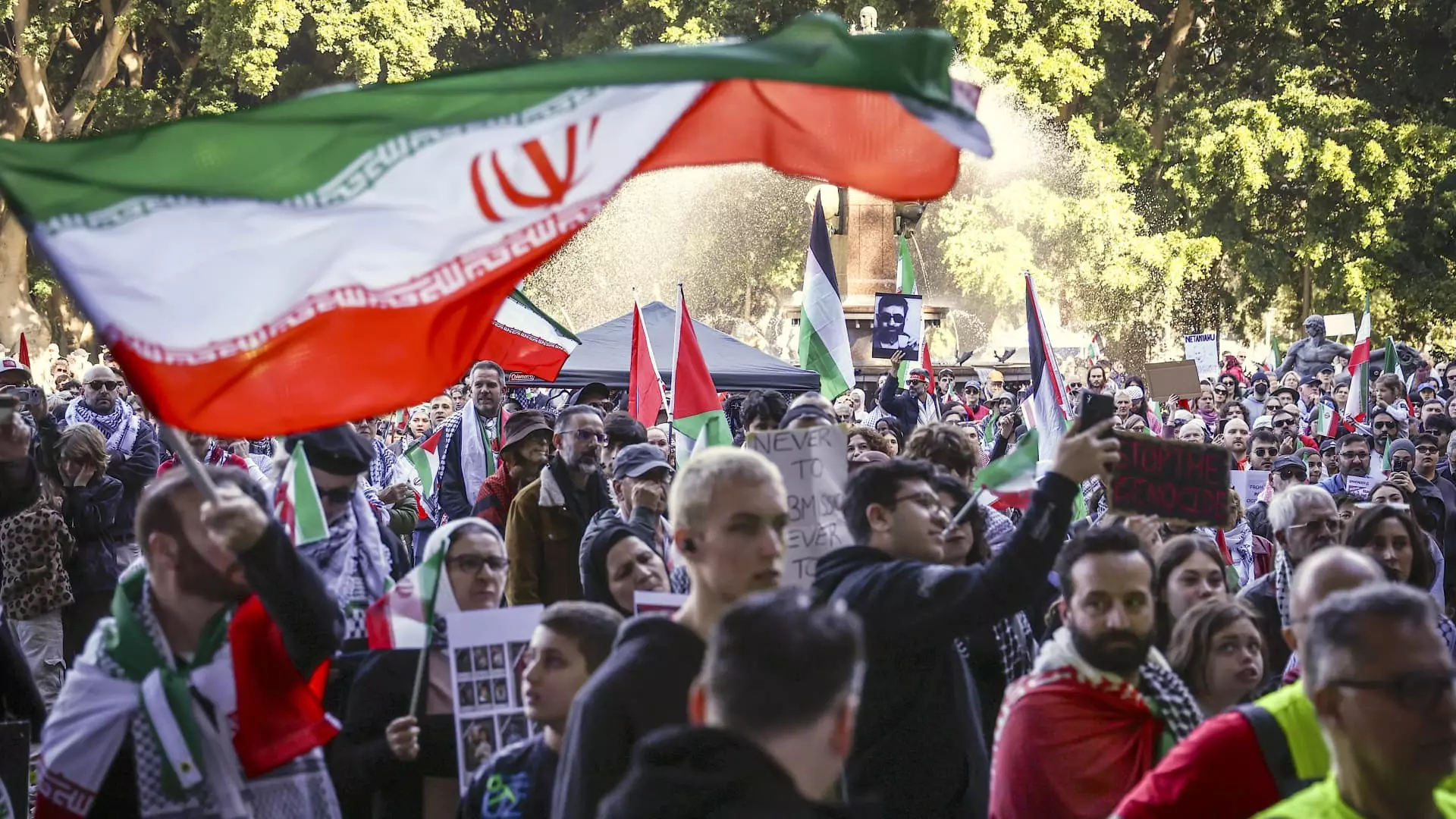The recent military escalation between the United States and Iran marks a sorrowful pivot away from diplomatic endeavors toward a grim battlefield mentality. Abbas Araghchi, Iran’s Foreign Minister, has starkly declared Tehran’s intent to protect its sovereignty following U.S. attacks that targeted critical nuclear enrichment facilities. The intensity and recklessness of the U.S. military operation spotlight a distressing vulnerability within international diplomatic frameworks. Instead of fostering peace and stability, these aggressive actions threaten the very essence of governance, propelling us towards what could be an avoidable catastrophe.
For every action, there tends to be a reciprocal reaction, and Iran’s missile strikes against Israeli military positions are a testament to that. The cycle of retaliation breeds a dangerous environment where reason is overshadowed by vengeance. Iran’s military response—reported to be the 20th wave of attacks—discloses more than just military prowess; it unveils a nation standing resilient, albeit precariously, amid acts perceived as hostile and unjust. As tensions mount, it becomes hard to ignore the possibility that regional conflict could spiral into broader warfare, with implications that reach far beyond the Middle Eastern borders.
Misguided Leadership Amid a Volatile Climate
Donald Trump’s declaration that the strikes represent a “spectacular military success” reeks of triumphalism that is not only misplaced but dangerously naïve. Such proclamations could mislead both American citizens and global spectators about the intricacies of conflict resolution. By presenting military intervention as a simple solution, the narrative dangerously neglects the nuances of diplomacy. The International Atomic Energy Agency’s report of no contamination at the nuclear centers does little to alleviate concerns over the broader consequences of engaging in militaristic tactics that could shatter any sense of stability.
Moreover, with the Pentagon’s aggressive stance being supported publicly by Israel, we see a geopolitical machination that simply favors confrontation over compromise. Israel celebrated the U.S. intervention, with Prime Minister Benjamin Netanyahu suggesting it could “change history.” Yet, this notion raises unsettling questions: whose history is being altered? And at what cost?
The United Nations: A Silent Spectator?
The stark warnings from United Nations Secretary-General Antonio Guterres about the escalating risk of catastrophe seem all but ignored. His assertion of a growing potential for conflict to spiral out of control serves as a dire reminder of the stakes involved. Where is the global accountability? The U.N. was designed to, in part, mitigate conflicts before they erupt into violence, yet we find ourselves at a juncture where aggression seems to outweigh diplomacy. It is disheartening to consider the adage, “the world is watching.” For nations like Saudi Arabia, Iraq, and Qatar who expressed concern, this represents a moment of reckoning: how can regional stability be ensured when major powers choose the path of wrath?
The notion that the U.S. could act unilaterally in the Middle East without substantial international consideration removes a critical layer of diplomacy that should be uncompromisingly prioritized. Petty power plays not only threaten the involved states but can also destabilize entire regions—leading to ripple effects as we’ve tragically witnessed historically.
What Lies Ahead?
The figures emerging from this conflict are alarming: at least 430 reported deaths in Iran since the Israeli strike, with civilian casualties mounting on both sides. Amidst this mourning, a pressing question looms large: what will it take for world leaders to understand that military strength should never substitute for diplomatic resolution? The failures to nurture channels for open dialogue, the inherent distrust reinforced by these strikes, and the clear threats of sustained military action have compounded an already fraught situation.
As the situation teeters on a precipice, one cannot help but ponder the fate of governance in a world increasingly opting for the allure of military might over the arduous journey of peace. Instead of taking flight toward aggression, might we not seek a level ground where accountability and understanding can flourish? For a global community in need of stability, it becomes clear: diplomacy must reclaim center stage, lest we plunge into further tragedy and turmoil.


Leave a Reply